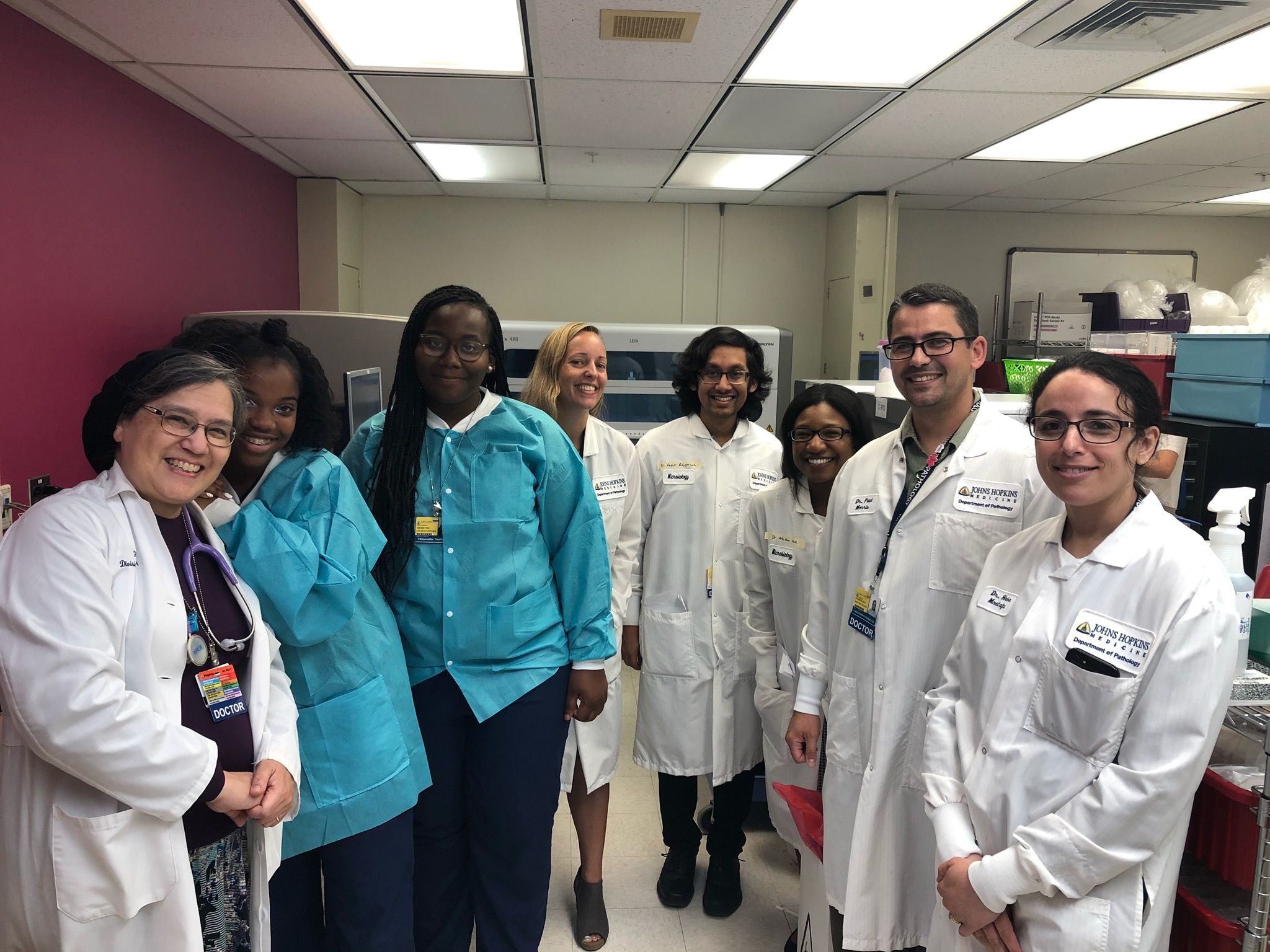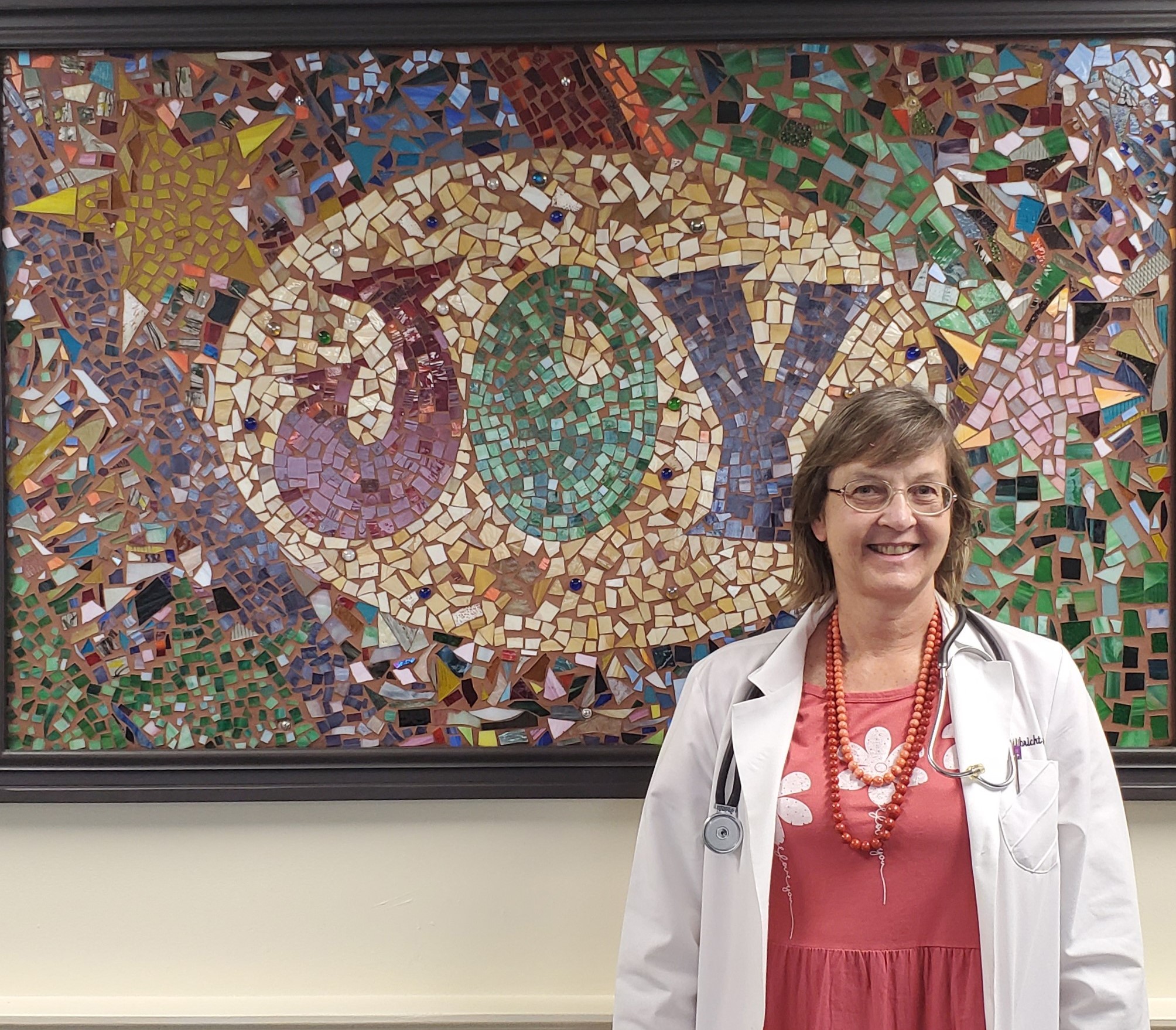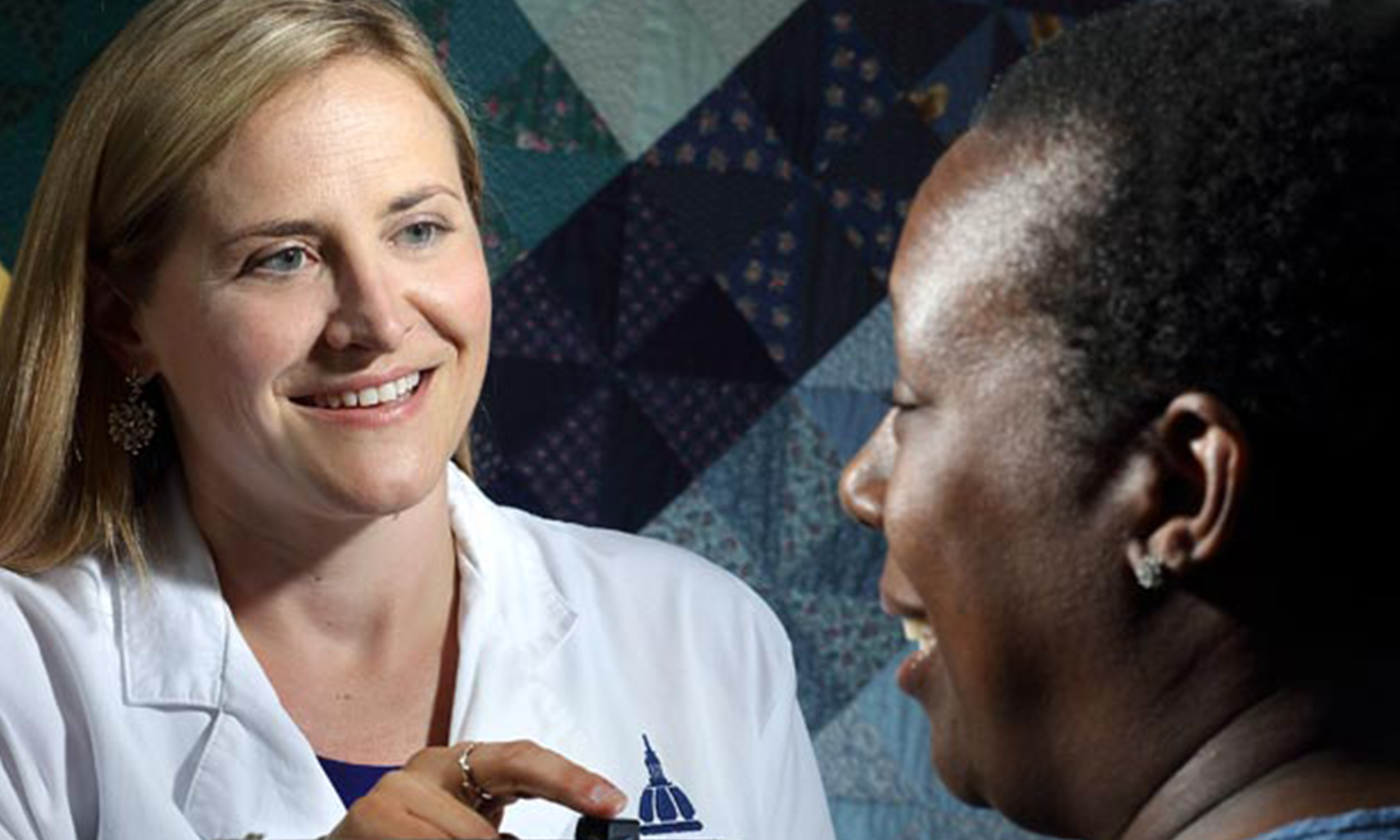When Joann Hunsberger, M.D., M.S., and her husband were searching for a Baltimore home 10 years ago, they knew they wanted to live in the community near where she worked at The Johns Hopkins Hospital.
“I didn’t want to just serve a community, I wanted to live in the community where I was serving and to be an active part of that community,” says Hunsberger, an assistant professor of pediatric anesthesia and pain medicine at the Johns Hopkins University School of Medicine.
Now Hunsberger is a mother of three school-age children who attend Patterson Park Public Charter School, or PPPCS. The couple chose the school because of its focus on the child as an individual as well as its commitment to community building.
When schools closed suddenly on March 13, 2020, due to the COVID-19 pandemic, staff and parents were unsure what the future would hold. During the spring and summer of 2020, the highly contagious coronavirus brought much of the world to a halt.
In August 2020, PPPCS formed a Health and Safety Committee of parents and staff at the recommendation of Baltimore City Public Schools. The committee’s goal is to research best practices and preferred vendors for items necessary to ensure students, staff and families’ health and safety. It also makes recommendations to the school administration to guarantee that PPPCS is ready to operate safely when in-person instruction resumes. The committee supports the administration by being stewards of health and safety protocols, ensuring that all health and safety recommendations are completed and in-place when in-person instruction resumes.
The committee meets every other week, and PPPCS executive director Jane Lindenfelser says she’s grateful for the group.
“We recognize that we’re not public health experts so we’re so thankful that members of our school community have backgrounds in health and communication. They help inform what we’re doing and make sure we’re making the best decisions for our community,” she says. “This has been a time of a remarkable amount of uncertainty, and the fact that all of these individuals raised their hands to say they’ll help the school figure this out means the world to me.”
Hunsberger was one of the parents who raised a hand to contribute to the committee.
“I volunteered because I thought that my medical and practical experience as a pediatric anesthesiologist in the operating rooms, on the airway team and in the ICU during the first wave of COVID last spring might be useful to the school community,” Hunsberger says. “I was able to speak about what measures we were taking at the hospital to keep providers and patients safe, and help translate that into something we could use at school.”
Hunsberger joined the face covering and screening subcommittee and contributed to the communications committee.
“I was impressed that PPPCS reached out to the school community, looking for our thoughts and opinions about how we could safely return to the school building,” she says. “The final decisions still fall on the shoulders of the PPPCS administration, but hopefully having this committee as a resource will help the school administration, staff and students to feel safe when returning to in-person school.”
Hunsberger worked with her committee to secure 400 masks for school supply distribution from Medicine for Greater Good, a Johns Hopkins Medicine organization that trains and educates medical residents in bridging the gap in health disparities between the hospital and the community. She also helped obtain a donation of nearly 100 ClearMasks so that little children and children learning English as a second language will be able to see the faces of their teachers better.
The committee has been challenged by not knowing exactly when city schools will be back in session. Deborah Mattera, PPPCS’ business manager, says the school is working hard to procure appropriate supplies for when that does happen.
With the committee’s recommendations, Mattera has ordered paper cups and water bottles because health and safety guidance dictates that students will no longer be using water fountains. She has purchased plastic storage totes for students to store their belongings, face masks, face shields, hand sanitizer, thermometers, cleaning supplies, desk shields and Chromebook-safe alcohol wipes. Mattera also procured face mask lanyards so when students have mask breaks for lunch and drinking water, the lanyards will keep the masks attached to the students.
“Community members have really come together to solve these problems,” Mattera says. “Joann was one of our steadfast reliable volunteers. She did not hesitate to give us her time and talent.”
Janet Pinkett, who coordinates services for gifted and advanced learners at PPPCS, says participating in the committee has been quite an undertaking.
“It’s an ongoing process but we have to make sure we have the protocols in place,” she says. “We’re not back in school yet, but we already know that we want staff to take health surveys before entering the building. We want to take everyone’s temperatures, and we know that masks will be mandatory.”
Pinkett says the staff is now measuring rooms to determine how many students each room can accommodate. She also says they have discussed bathroom schedules as they have decided that only one student should be present in a four-stall bathroom. The group has also had to determine how students can safely travel down hallways and stairwells.
“Despite this terrible pandemic, it has been a wonderful experience because I see people working together for the good of the whole,” Pinkett says. “I’ve seen health care professionals, other parents and school administrators come together to brainstorm and respect what each other was putting on the table.”
Pinkett says Hunsberger came to the table with expertise and worked in concert with everyone to create an environment of sharing and learning from each other.
“She thinks on her feet very quickly. In addition to her medical skills and abilities, she listens and that is very important,” she says. “It’s great to have her as part of the team. She knows when her leadership is needed and knows when there’s an opportunity for others to take the lead.”
Having trained professionals weigh in on what PPPCS’s practices should be has eased many of staff’s concerns, says Chad Kramer, principal of PPPCS.
“We have a desire to open and serve our kids as quickly as we could do it safely,” Kramer says. “Our Health and Safety Committee informed not just the way we will open the building but the way we talk about it with our students and staff.”
Kramer says the school’s number one job is to keep everyone safe.
“We could have the greatest classes, but if they don’t feel that they’re safe this work is not going to get done,” he says. “We strive to address the needs of the whole child — physical and emotional. They are stewards of an equitable future. We can’t aspire to that level of work if people are getting sick. Our zip code is one among those with the highest infection rates in the state, and there’s so much uncertainty. I love that our community is rising together and putting their kids first. We are going to come out of this stronger.”



